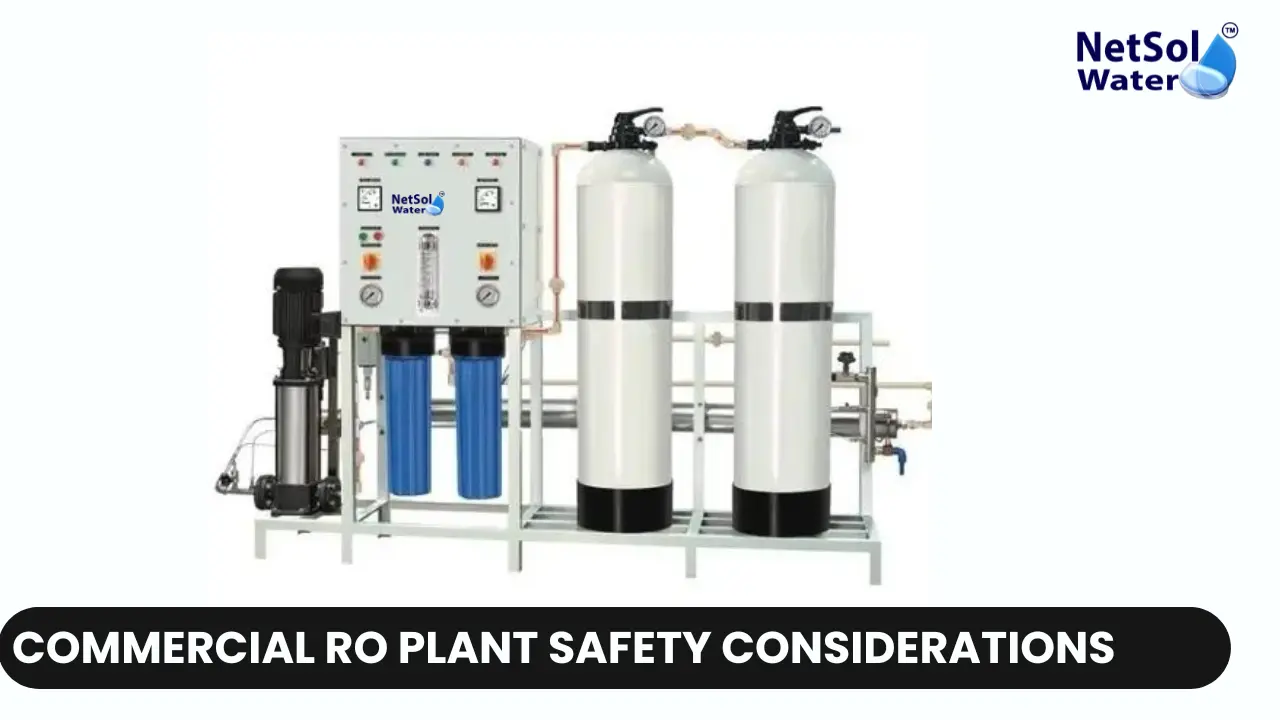Water is really important for life, and as more people need it, we have to make sure it's clean and safe. Commercial Reverse Osmosis (RO) plants are super important for giving us clean water for industries, businesses, and homes. But these plants can be risky. There's a chance of workers getting exposed to chemicals, dealing with high-pressure systems, and even causing harm to the environment when we get rid of wastewater. So, it's important to keep workers safe by training them well, looking after the equipment, and following safety rules. We also need to be careful about how we dispose of the stuff left over from making clean water, like the brine concentrate. By focusing on safety and taking care of the environment, RO plants can keep providing clean water while avoiding problems.
Workplace Safety
Operating a commercial RO plant requires adherence to strict safety protocols to protect employees from potential hazards. Some key considerations in this area include:
Chemical Handling: RO plants often use chemicals for pretreatment, cleaning, and disinfection processes. Proper handling, storage, and disposal of these chemicals are essential to prevent accidents, spills, and environmental contamination.
Electrical Safety: RO plants have various electrical components, such as pumps, control panels, and monitoring systems. Proper grounding, insulation, and regular maintenance of these components are crucial to prevent electrical shocks, fires, and other electrical hazards.
Confined Space Entry: Some areas of an RO plant, such as tanks and vessels, may be classified as confined spaces. Strict protocols must be followed when entering these spaces to ensure adequate ventilation, emergency procedures, and proper personal protective equipment (PPE).
Environmental Safety
Commercial RO plants generate waste streams, including concentrate (brine) and cleaning solutions, which can have adverse environmental impacts if not properly managed. Environmental safety considerations include:
Concentrate Management: The concentrate generated by the RO process can be highly saline and may contain contaminants. Proper disposal or treatment of this concentrate is crucial to prevent environmental pollution and ecological damage.
Chemical Spill Containment: Effective spill containment measures, such as secondary containment systems and spill response plans, must be in place to minimize the impact of chemical spills on the surrounding environment.
Noise Pollution: RO plants can generate significant noise levels due to the operation of pumps and other equipment. Appropriate noise control measures, such as sound insulation and strategic plant layout, should be implemented to mitigate the impact on nearby communities.
Process Safety
The efficient and safe operation of an RO plant relies on various process safety measures to prevent accidents, equipment failures, and system breakdowns. Key considerations in this area include:
Pressure Management: RO systems operate under high pressures, which can pose risks of leaks, ruptures, and equipment failure. Proper pressure monitoring, relief valves, and regular maintenance are essential to ensure safe operation.
Membrane Integrity: The membranes used in RO plants are critical components that can be susceptible to fouling, scaling, and degradation. Regular monitoring, cleaning, and replacement of membranes are necessary to maintain system performance and prevent membrane failures.
Water Quality Monitoring: Continuous monitoring of feed water quality, product water quality, and system performance is crucial to ensure the plant is operating within specified parameters and producing safe, high-quality water.
Training and Procedures
Proper training and adherence to standard operating procedures (SOPs) are essential for maintaining a safe and efficient RO plant operation. Key considerations in this area include:
Employee Training: All personnel involved in the operation, maintenance, and management of the RO plant should receive comprehensive training on safety protocols, emergency procedures, and proper handling of equipment and chemicals.
Standard Operating Procedures (SOPs): Well-documented and regularly updated SOPs should be in place for all aspects of the plant's operation, including start-up, shutdown, maintenance, and emergency response procedures.
Emergency Preparedness: A comprehensive emergency response plan should be developed and regularly reviewed, covering scenarios such as chemical spills, fires, equipment failures, and natural disasters. Regular drills and exercises should be conducted to ensure preparedness.
Conclusion
Running a commercial RO plant demands a thorough safety approach, covering workplace safety, environmental protection, process safety, and training procedures. This prioritization helps operators reduce risks, meet regulations, and run a safe, sustainable water treatment operation. Regular audits, ongoing improvement, and fostering a strong safety culture are vital for lasting success in the commercial RO sector. With robust safety measures in place, RO plants can reliably provide clean water while safeguarding workers, communities, and the environment.
Do you need an advice or assistance on selecting the best water and waste water treatment unit? We have solutions for all your problems!
Let us now your problem, our experts will make sure that it goes away.
For an assistance or related query,
Call on +91-965-060-8473
Or write us at enquiry@netsolwater.com



